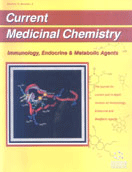Abstract
The concentration of HDL cholesterol is a powerful predictor of the occurrence of cardiovascular events, with a possible causal relationship between these variables. As such, the ability of pharmacological agents to influence HDL levels, and to affect the related processes such as reverse cholesterol transport, is of considerable relevance to the prevention and treatment of cardiovascular disease. Whilst currently available lipid modifying therapy does influence HDL cholesterol levels, and those of its sub-fractions, the effects are generally modest in comparison with the effects which can be achieved in reducing levels of LDL cholesterol. Thus, HMG CoA reductase inhibitors at the prevailing doses generally increase HDL cholesterol by no more than 10%. Fibrates induce a somewhat similar response. Somewhat larger effects are seen with niacin, and smaller effects with ezetemibe. CETP inhibition by agents such as torcetrapib are able to produce more marked effects. Knowledge of the effects of these agents on functional processes in man, such as reverse cholesterol transport is limited. Evidence that elevation of plasma HDL levels can causally influence cardiovascular outcomes is largely dependent on studies with agents which principally influence HDL and triglyceride levels, rather than LDL, and in subjects with low HDL cholesterol levels at baseline. Trial data does not suggest that HDL modification is a major contributor to the clear beneficial effects of HMG CoA reductase inhibitions. Outcome trials with agents, such as torcetrapib, which effect larger changes in HDL cholesterol should give clearer insight into the potential therapeutic benefits of such strategies. However, newer approaches will be required to evaluate the efficacy of agents designed to improve functional aspects of HDL cholesterol such as cellular cholesterol efflux, as distinct from functions directly dependent on HDL cholesterol levels.
Keywords: hdl, reverse cholesterol transport, coronary artery disease
 1
1








